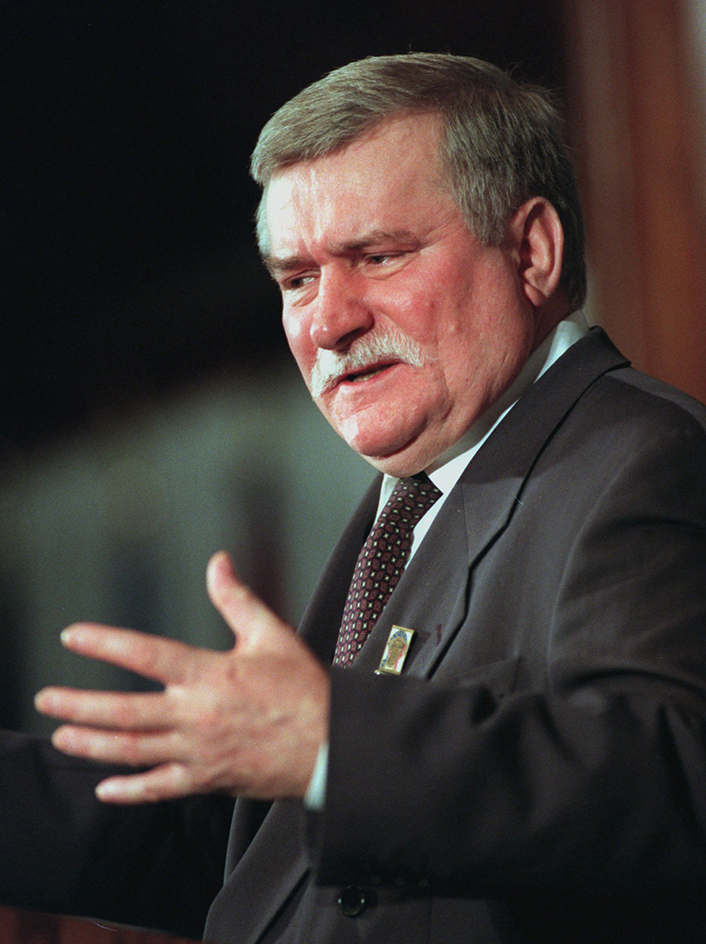Walesa, Lech, << vah WEHN sah, lehk >> (1943-…), was president of Poland from 1990 to 1995. Prior to his election, Walesa had been an important labor leader.

In 1980, Walesa was chosen as provisional head of Solidarity—an organization composed of about 50 Polish trade unions. His negotiations with Poland’s government that year led to the government’s recognition of Solidarity. This action marked the first time a Communist country recognized a labor organization that was independent of the country’s Communist Party. Walesa was elected chairman of Solidarity in 1981. The movement faced growing hostility from Poland’s Communist Party and the Soviet Union. In December 1981, Poland’s government established martial law and suspended Solidarity’s activities. Walesa and hundreds of other union leaders were imprisoned. In October 1982, the government outlawed Solidarity. Walesa was released in November. The other prisoners were freed over the next several years.
The government ended its ban on Solidarity in 1989. Also in 1989, it allowed elections for a new Parliament. The elections were the freest ones in Poland since the country became a Communist state in 1945. Almost every candidate who was endorsed by Walesa and Solidarity won a seat in Parliament (see Poland (Free elections)). After Walesa was elected president in 1990, he resigned as chairman of Solidarity.
Walesa was born on Sept. 29, 1943, in Popow, north of Warsaw. In 1967, he became an electrician at the shipyards in Gdansk. There, Walesa began taking part in the workers’ rights movement. Walesa won the 1983 Nobel Peace Prize for his efforts to prevent violence while trying to gain workers’ rights.
